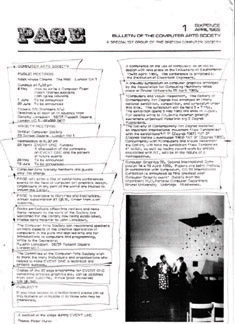Rob Young: Electric Eden: Unearthing Britain’s Visionary Music (2010)
Filed under book | Tags: · music, music criticism, music history, united kingdom

In this groundbreaking survey of more than a century of music making in the British Isles, Rob Young investigates how the idea of folk has been handed down and transformed by successive generations – song collectors, composers, Marxist revivalists, folk-rockers, psychedelic voyagers, free festival-goers, experimental pop stars and electronic innovators.
In a sweeping panorama of Albion’s soundscape that takes in the pioneer spirit of Cecil Sharp; the pastoral classicism of Ralph Vaughan Williams and Peter Warlock; the industrial folk revival of Ewan MacColl and A. L. Lloyd; the folk-rock of Fairport Convention, Sandy Denny, Nick Drake, Shirley Collins, John Martyn and Pentangle; the bucolic psychedelia of The Incredible String Band, The Beatles and Pink Floyd; the acid folk of Comus, Forest, Mr Fox and Trees; The Wicker Man and occult folklore; the early Glastonbury and Stonehenge festivals; and the visionary pop of Kate Bush, Julian Cope and Talk Talk, Electric Eden maps out a native British musical voice that reflects the complex relationships between town and country, progress and nostalgia, radicalism and conservatism.
An attempt to isolate the ‘Britishness’ of British music – a wild combination of pagan echoes, spiritual quest, imaginative time-travel, pastoral innocence and electrified creativity – Electric Eden will be treasured by anyone interested in the tangled story of Britain’s folk music and Arcadian dreams.
Publisher Faber and Faber, 2010
ISBN 0571237525, 9780571237524
664 pages
PDF (EPUB; updated on 2012-7-16)
Comment (0)Digital Opportunity: A Review of Intellectual Property and Growth (2011)
Filed under report | Tags: · copyright, intellectual property, united kingdom

In November 2010 the Prime Minister David Cameron announced an independent review of how the Intellectual Property framework supports growth and innovation.
Chaired by Professor Ian Hargreaves and assisted by a panel of experts, the review reported to Government in May 2011.
The Review makes 10 recommendations designed to ensure that the UK has an IP framework best suited to supporting innovation and promoting economic growth in the digital age.
An Independent Report by Professor Ian Hargreaves
May 2011
PAGE, 1-71 (1969-1985, 2004-2014)
Filed under magazine | Tags: · art history, computer art, computing, history of computing, history of technology, media art, media history, united kingdom

“PAGE is the bulletin of the Computer Arts Society.
The Computer Arts Society was one of the most influential British computer art groups. It was founded in 1968, followed by an inaugural exhibition, Event One, in March 1969 at the RCA. George Mallen, Alan Sutcliffe and Lansdown set up CAS as an offshoot of the British Computer Society, to further the use of computers by artists. CAS flourished through the 1970s and early 80s.
PAGE was initially published from April 1969 until 1985 and was named after the concept of paging (the use of disk memory as a virtual store which had been introduced on the Ferranti Atlas Computer). It featured major British and international computer artists and hosted some fundamental discussions as to the aims and nature of computer art. Its first editor was Gustav Metzger, thereby establishing from the beginning an association with the avant-garde. Metzger was ‘excited’ to discover CAS and ‘people coming together’ as he had ‘felt quite isolated.’ As early as 1961, Metzger had stated that ‘…the artist may collaborate with scientists, engineers.’ As many members were outside of London or overseas, PAGE was an important disseminator of information.”
Publisher Computer Arts Society, London
PDFs (1969-1985 & 2004-2014, updated on 2017-12-2)
PDFs (1969-1985)

